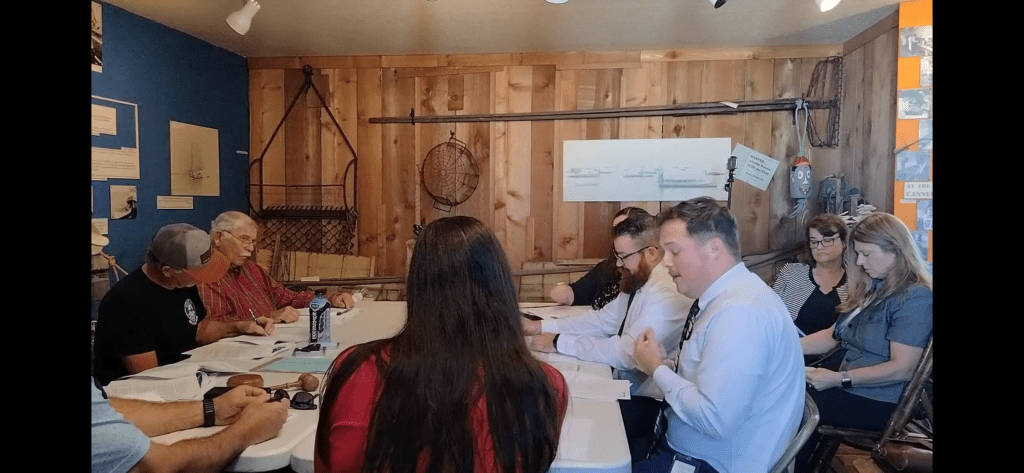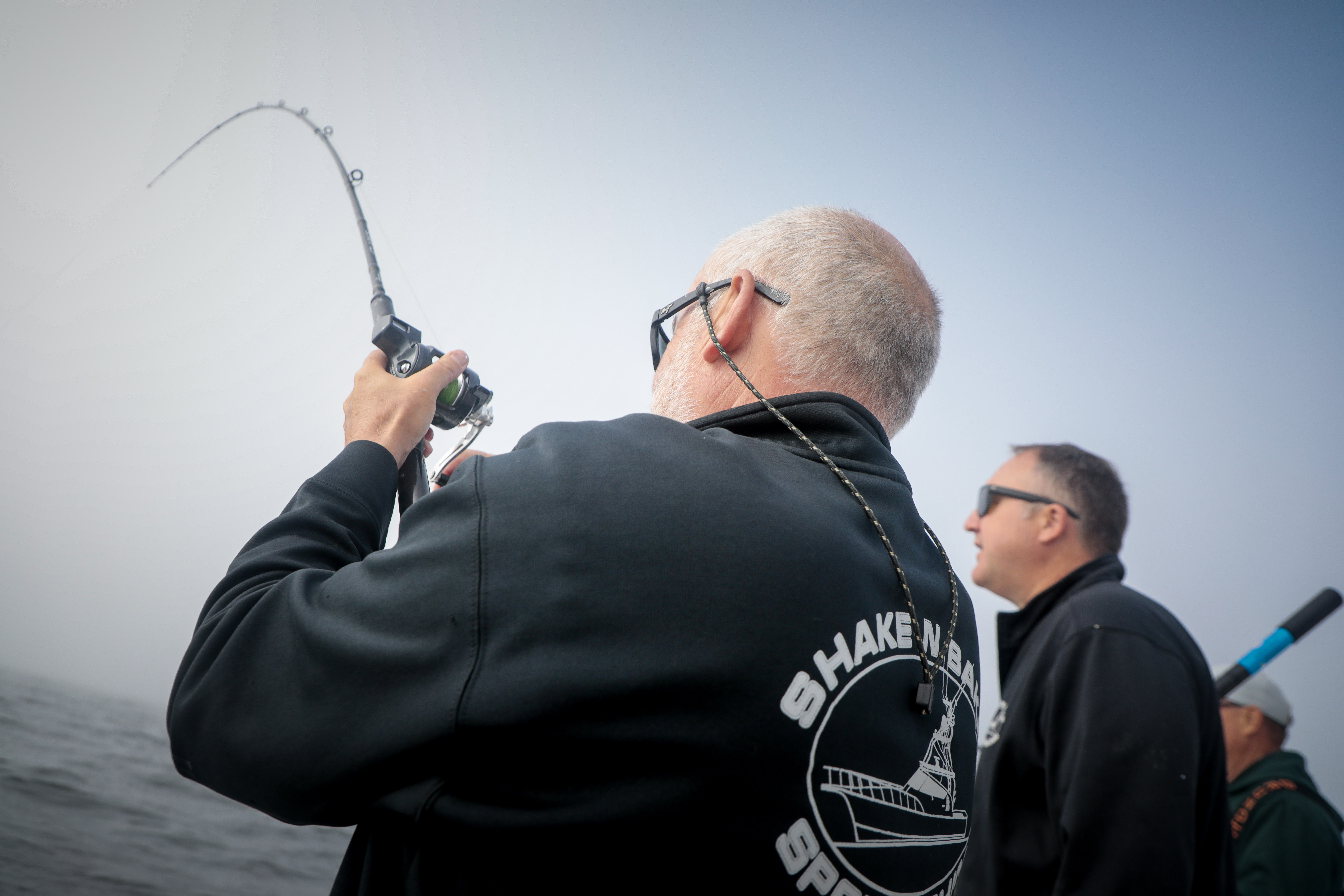Port audit: Disarray, delay, deny
Published 2:00 pm Tuesday, October 1, 2024

- IMG_0094.png
NAHCOTTA — Nine months after the start of an audit of the Port of Peninsula, the Washington State Auditor’s Office reported financial mismanagement, violations of the Open Public Meetings Act, lackluster financial accountability and delaying tactics.
Trending
Officials from the state auditor’s office (SAO) met with the port Sept. 24 to divulge findings. Port Commissioners Phil Martin, Bill Derion and Chuck Mikkola, Port Executive Director Jay Personius and a large audience were on hand to hear from the five-person auditing team.
Only expected to take a month or two after starting in mid-December 2023, the audit dragged along due to a lack of cooperation and the absence of routine documents.
“Throughout the audit, auditors observed a general lack of organization at the port,” Washington State Auditor Pat McCarthy said in a blunt review of the process. “Port officials withheld requested documents from auditors. Basic financial records were disorganized and could not be tied to the annual reports, which resulted in the auditors having a limited ability to rely on the documentation the port provided.”
Trending
Areas of concern
Findings in the completed audit generally reflect those in a preliminary version the Observer reported on in August.
The completed report contains four specific findings, including the sale of $656,438 worth of goods and services. But auditors were only able to identify $312,463 that had been collected, perhaps in part because the port transitioned from formal billing statements to handwritten receipts at some point in 2022.
The audit also discovered that $57,980 in IRS withholding and employee benefits had been collected but were only eventually forwarded to federal and state agencies after months of delays.
Auditors also found the port had several expired lease agreements, including some that continued beyond “applicable renewal periods.” Lease agreements at the port are based on decades-old rates inconsistent with fair market values, the state said.
Noting that the port experienced the loss of a key accounting employee, the audit also found that the port filed its 2021 annual report to the auditor’s office 318 days late and its 2022 annual report 344 days late.
“It’s not enough for government officials to say they are being accountable to the public; the public must have access to the information they need to hold a government accountable,” McCarthy said.
“This audit shows the port’s elected commissioners need to demonstrate accountability with actions — being transparent, keeping documentation, and following the Open Public Meetings Act. Nothing else generates public confidence,” McCarthy added.
The audit did not find that funds had been misappropriated. In a letter drafted by private attorneys hired by the port at taxpayer expense, Personius and Martin said, “we have no knowledge of any loss of public funds or assets or other illegal activity, or any allegations of fraud or suspected fraud involving management or employees.”
Port cadre unfazed
Throughout the audit process, Personius, Martin and Derion remained adamant that nothing of substance would be found and that the audit was “routine.” Personius, in particular, has been unwilling to acknowledge problems under his watch.
During the Sept. 24 meeting, Personius read a prepared statement that echoed the port’s written response to the audit findings — which are included in the report. Excuses pointed to the covid-19 pandemic as a significant contributor to the issues.
“While we respect the SAO’s viewpoint, we believe it is essential to highlight several differences of interpretation,” the port responded. “The port maintained a strong financial position and strategically employed an internal loan, a prudent approach commonly used by local agencies. This decision allowed the port to pay interest back into its own funds, ensuring that public money remained available for port use to support our local economy.”
“It is also important to note that all warrant expenditures have been approved by the port commission, reflecting our adherence to rigorous financial oversight. Any delay in payments, while subsequently handled, were an inevitable result of the unprecedented challenges and disruptions brought on by the covid-19 pandemic. We appreciate the SAO’s partnership and appreciate the insights provided,” the port added.
Mikkola has taken issue with port management and chided Personius’s stance following the audit.
“He takes no responsibility for his actions or the board’s,” Mikkola said. “He gives zero details of how this fiasco in management will be avoided in future port management. I find this far more egregious than even the negative audit; that of not accepting responsibility for past failures.”
“It’s the perfect storm in management gone wrong. A top manager that is incompetent as well as arrogant, and two commissioners with zero management experience that follow Jay as the Pied Piper. Looking back to when Jay started with the port and it’s obvious to anyone that problems started there and have grown in both magnitude and numbers. Everything seems to have issues,” Mikkola added.
He took issue with an executive session called by Personius on Sept. 24 to consult with legal counsel.
“It’s disconcerting that Jay needs to yet again add to the port’s ever-increasing legal bills when this month alone the port paid out nearly $7,000 to attorneys in addition to the $80,000-plus already paid in recent months. In my opinion, these are wasted funds that could be put to better uses rather than defend the actions of one person,” Mikkola said.
What’s next
Following the release of the details in the commission meeting, a large crowd inside the center challenged Personius, Martin and Derion. The board responded by closing the meeting, and Personius walked out of the room.
Former port commissioner Bonnie Cozby demanded Martin and Derion resign because of their involvement in the port’s audit mess. The two are facing calls for a recall, and a community group met on Sept. 27 to discuss options.
“It was agreed that the poor financial, compliance and business practices that have been allowed to continue at the port left the public with no option other than recalling [Chair] Phil Martin,” Cozby said.
“The continued refusal of Commissioners Martin and Derion to hold the port manager accountable for the administrative and financial failings found in the recent audit and the multiple issues uncovered and brought to public light since late February 2023 provided no other course of action. Multiple calls from the public for two commissioners to step down have fallen on deaf ears,” Cozby added.
The SAO has no authority over the port other than publishing the report findings and issuing a public scolding. There is no legislation in place that allows for any sanctions or further action except additional audits — unless the issues continue and the Washington State Attorney General’s Office steps in.
“At the exit conference with the port, we confirmed we would be back next year, in 2025, to perform an audit of their operations in 2023-2024,” SAO spokesman Adam Wilson said. “We are post auditors, meaning the fiscal year and associated records [have] to close before we perform our work.”
“We also want to give the port some time to take corrective action on the issues in this audit, improvements that we hope will be reflected in the remaining part of 2024,” Wilson added. “As mentioned before, we don’t have authority to issue any kind of penalty for audit findings, even when they go uncorrected and are repeated. However, we hope folks at the port and in the community will take our findings seriously and make improvements immediately.”









